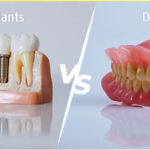Many people experience anxiety or fear when thinking about visiting the dentist. This common condition, known as dental anxiety or dental phobia, can prevent individuals from seeking necessary dental care. Avoiding the dentist may lead to worsening oral health issues and even affect overall well-being.
In this article, we will explore the causes of dental anxiety, its effects, and practical strategies to help you manage your fears. With the right preparation and mindset, you can make your next dental visit much more comfortable and stress-free.
Understanding Dental Anxiety
Dental anxiety ranges from mild nervousness to intense fear. It can manifest as physical symptoms such as sweating, rapid heartbeat, or nausea, as well as emotional symptoms like panic or dread.
Causes of Dental Anxiety
- Previous traumatic dental experiences
- Fear of pain or needles
- Loss of control or feeling vulnerable
- Embarrassment about dental health
- Sounds and smells of the dental office
- Generalized anxiety or phobias
Recognizing the root causes of your anxiety is the first step to overcoming it.
The Impact of Dental Anxiety on Oral Health
Avoiding dental care due to anxiety can result in:
- Tooth decay and cavities
- Gum disease and infections
- Tooth loss
- Difficulty eating and speaking
- Increased treatment complexity and costs
Managing dental anxiety is crucial not just for your peace of mind but also for maintaining a healthy mouth and overall health.
Tips to Manage Dental Anxiety
Here are several effective strategies to help reduce your fear and feel more in control during dental visits.
1. Communicate Openly with Your Dentist
- Inform your dentist about your fears and concerns.
- Ask questions about the procedure to understand what to expect.
- Request breaks during treatment if needed.
Open communication helps build trust and allows the dentist to tailor the experience to your needs.
2. Choose a Dentist Who Understands Dental Anxiety
- Look for a dentist experienced in treating anxious patients.
- Some dentists offer sedation options or specialized calming techniques.
Choosing the right professional can make a significant difference.
3. Practice Relaxation Techniques
- Deep breathing exercises before and during the visit can calm your nervous system.
- Meditation, guided imagery, or progressive muscle relaxation help reduce stress.
- Listening to calming music during treatment can distract and soothe.
4. Bring a Support Person
- Having a trusted friend or family member accompany you can provide comfort and reassurance.
5. Schedule Wisely
- Book morning appointments when you are less likely to feel fatigued or stressed.
- Avoid long waits by arriving just before your appointment time.
6. Use Distraction Tools
- Noise-canceling headphones or music playlists.
- Watching videos or virtual reality during treatment if the office offers it.
7. Consider Sedation Dentistry
- Options include nitrous oxide (laughing gas), oral sedatives, or IV sedation.
- Sedation helps reduce anxiety and makes procedures more comfortable.
- Discuss risks and benefits with your dentist.
Preparing for Your Dental Visit
Good preparation can help you feel more in control and reduce anxiety.
1. Learn About the Procedure
Understanding the steps involved can reduce fear of the unknown. Ask your dentist for a detailed explanation or watch educational videos.
2. Set Realistic Expectations
Know that minor discomfort may occur, but modern dentistry focuses on minimizing pain.
3. Plan Your Day
Avoid scheduling stressful activities immediately before or after your appointment.
After the Appointment: Managing Post-Treatment Anxiety
- Reward yourself with a relaxing activity.
- Reflect on the positive aspects of the visit.
- Share your experience with your dentist to improve future visits.
Positive reinforcement helps reduce anxiety over time.
When to Seek Professional Help for Dental Anxiety
If your fear is severe and prevents you from visiting the dentist, consider:
- Counseling or cognitive-behavioral therapy (CBT).
- Support groups or anxiety management workshops.
- Referral to specialists who handle dental phobia.
Professional support can help break the cycle of fear.
Conclusion
Dental anxiety is common but manageable. With awareness, open communication, and practical strategies, you can overcome your fears and maintain good oral health. Remember, regular dental visits are vital for a healthy smile and overall well-being. Taking small steps toward managing your anxiety will make each visit easier and more comfortable.
FAQs
1. What causes dental anxiety?
Dental anxiety can stem from previous painful experiences, fear of needles, embarrassment, or general anxiety disorders.
2. How can I tell my dentist about my anxiety?
Be honest and upfront with your dentist. They are trained to help and can adjust your treatment plan accordingly.
3. Are there medications to help with dental anxiety?
Yes, sedation options like nitrous oxide or oral sedatives are available to help calm nerves during procedures.
4. Can relaxation techniques really help?
Yes, deep breathing, meditation, and distraction techniques can significantly reduce anxiety symptoms.
5. What if my anxiety is too severe to visit the dentist?
Seek professional mental health support, such as cognitive-behavioral therapy, to address severe dental phobia.





